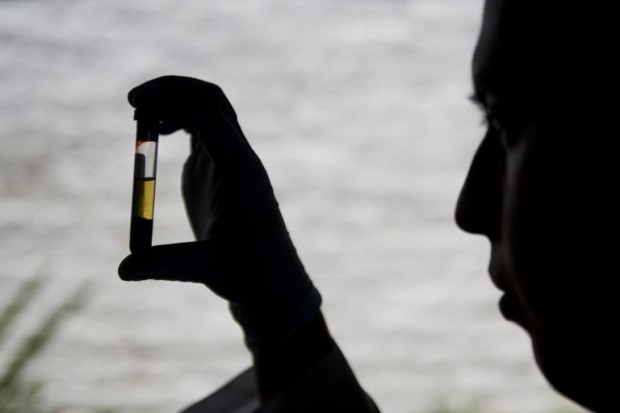First drug-resistant malaria parasite detected in Africa

This file photo taken on April 26, 2012, shows a scientist looking at a blood sample in a laboratory at the Center for Scientific Research Caucaseco in the outskirts of Cali, Colombia. AFP
MIAMI, United States — For the first time in Africa, researchers said Wednesday they have detected a malaria parasite that is partially resistant to the top anti-malaria drug, artemisinin, raising concern about efforts to fight a disease that sickens hundreds of millions of people each year.
The discovery means that Africa now joins southeast Asia in hosting such drug-resistant forms of the mosquito-borne disease.
Malaria infected more than 200 million people and killed some 438,000 people worldwide in 2015, most of them children in Africa.
READ: Drug-resistant malaria spreading fast in Southeast Asia
“The spread of artemisinin resistance in Africa would be a major setback in the fight against malaria, as ACT (artemisinin-based combination therapy) is the only effective and widely used antimalarial treatment at the moment,” said lead author Arnab Pain, professor at the King Abdullah University of Science and Technology.
Article continues after this advertisement“Therefore, it is very important to regularly monitor artemisinin resistance worldwide.”
Article continues after this advertisementThe drug-resistant malaria parasites were detected in a Chinese patient who had traveled from Equatorial Guinea to China, said the report led by Jun Cao from the Jiangsu Institute for Parasitic Diseases in China.
The study was published in the New England Journal of Medicine.
Combination therapy with artemisinin usually clears malaria from the blood in three days.
In southeast Asia, strains of the malaria-causing agent, Plasmodium falciparum, have grown relatively tolerant to artemisinin, in what is known as “partial resistance.”
Most patients can still be cured, but it takes longer.
World Health Organization experts are concerned that P. falciparum could eventually become completely resistant to artemisinin, just as it has to other antimalarial drugs.
Researchers said they found the parasite carried a new mutation in a gene called Kelch13 (K13), which is the main driver for artemisinin resistance in Asia.
They then confirmed the origin of the resistance was Africa, by using “whole-genome sequencing and bioinformatics tools we had previously developed — like detectives trying to link the culprit parasite to the crime scene,” he said. CBB